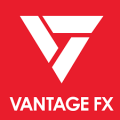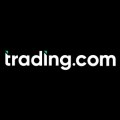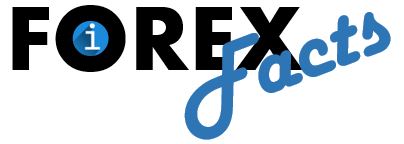Forex Facts – Learn all you need to know about the forex market and trading other financial assets, where to trade, which brokers to avoid, Compare FX brokers
Trading 212 Trading Strategies: How to Trade Retracements
Trading 212 shows you how to find retracements and identify entry and exit points…
Read More »
Have you been deceived by a dishonest broker? Take your first step to recover your funds
Has a dishonest broker deceived you? Global Recovery Alliance can help you recover funds…
Read More »
Education
Forex Facts -What Is Forex Trading?
Forex is an acronym for Foreign Exchange. Other names commonly used in the marketplace are FX and Currency Trading.
Forex trading is an activity where speculators participate in the global financial markets with the objective of profiting from the price movements between currencies.
Forex Facts –Currency Pairs explained
Before you enter your first trade, it’s important to learn about currency pairs and what they signify.
The forex market uses symbols to designate specific currency pairs. The euro is symbolized by EUR, the U.S. dollar is USD, so the euro/U.S. dollar pair is shown as EUR/USD. Other commonly traded currency symbols include AUD (Australian dollar), GBP (British pound), CHF (Swiss franc), CAD (Canadian dollar), NZD (New Zealand dollar), and JPY (Japanese yen).2
Each forex pair will have a market price associated with it. The price refers to how much of the second currency it takes to buy one unit of the first currency. If the price of the EUR/USD currency pair is 1.3635, this means that it costs 1.3635 U.S. dollars to buy one euro.
Forex Facts – . Who Can Participate in Currency Trading or Forex Trading?
Anyone can participate in Forex trading but must use a licensed broker or dealer to access the market. Individual participants in the Forex market are referred to as Retail Traders, while banks, corporations and large funds are called Institutional Traders.
Forex Facts – Where Is the Forex Market Based? What Are the Trading Hours?
Unlike stocks and commodities, currencies are not traded at an exchange. The Forex market consists of a global network of computers which connects licensed dealers, brokers, banks and institutions.
The Forex market does not have official trading hours. You can place a trade whenever your chosen platform allows, which is typically 24 hours per day from Monday to Friday.
Forex Facts – How Big Is the Currency Market?
The Forex market is by far the largest and most liquid financial market in the world. Its trading volume is $5.3 trillion a day, 30 times larger than that of the New York Stock Exchange (NYSE), one of the biggest stock markets in the world. The sheer size and liquidity of the Forex market is advantageous to traders as entry and exit is immediate because there are always counterparties available for a trade.
Forex Facts – Is Forex Trading Risky?
Yes. All financial investment and speculation carry risk, but Forex activities are even riskier because leveraged trading is employed. You can lose more than the funds in your trading account.
What is leveraged trading?
Put simply, your broker lends you the money to trade currencies and requires you to pay only a security deposit upfront to cover any losses. Leverage is popular to Retail Traders as they can take larger positions in the market and benefit from even small currency movements. However, the flipside is also true i.e. when the market moves against you, then your potential losses are also magnified.
Forex Facts – Do People Make Money From Currency Trading?
There are many traders in history that have made vast fortunes, or at least partially, from Forex Trading. To name a few, George Soros is reportedly worth $24 billionand Steve Cohen $13 billion.
Forex Facts – What Are the Traits of a Successful Forex Trader?
Prosperous currency traders share common characteristics such as knowledge, experience and having access to timeous and reliable information.
How Can a Newcomer Replicate the Requirements for Success in Forex Trading?
Knowledge: join a dealer / broker platform that offers quality educational content. It is normally available to registered clients for free to promote learning as the service provider has a vested interest in the client’s ongoing success. The study material is typically accessible online 24/7 and covers topics like the fundamentals of Currency trading, also how to use charts as a powerful tool during the process, which is called technical analysis.
Experience: ensure that the selected platform offers a Demo facility. This is where the broker allows the aspirant speculator to trade in the real Forex market, but with play money. The simulation account is credited with artificial funds of say $50,000 or $100,000. The learner then applies the newly acquired knowledge in the live market, but totally risk-free. This is the ideal way to gain good experience beforehand. The Demo can be used for many months, or even years, until the student is confident enough to trade with real money. The training phase is also a good time for the trader to decide whether Currency trading is for them, or not. If no, then it is a good opportunity to exit the venture without any risk of loss.
Information: in the fast moving Forex market it is vital to have a continuous flow of timeous and reliable information to base trades on. When a Currency broker or dealer platform is selected, care should be taken that it is a reputable organization with a financial services license, also a long and solid history.


























